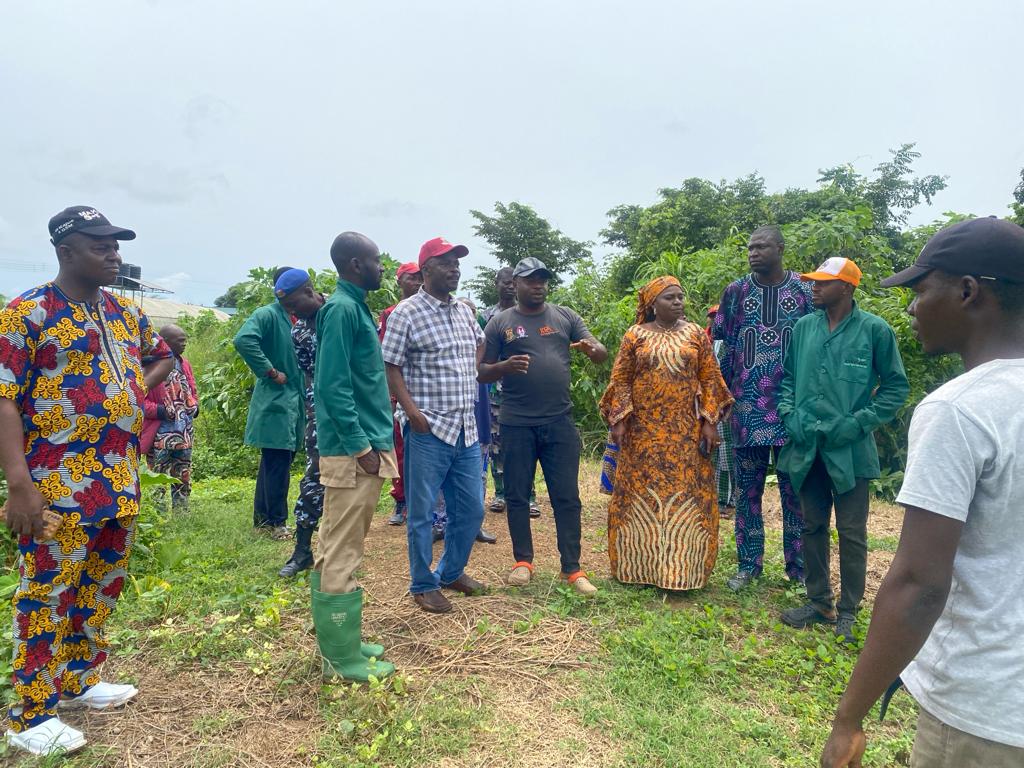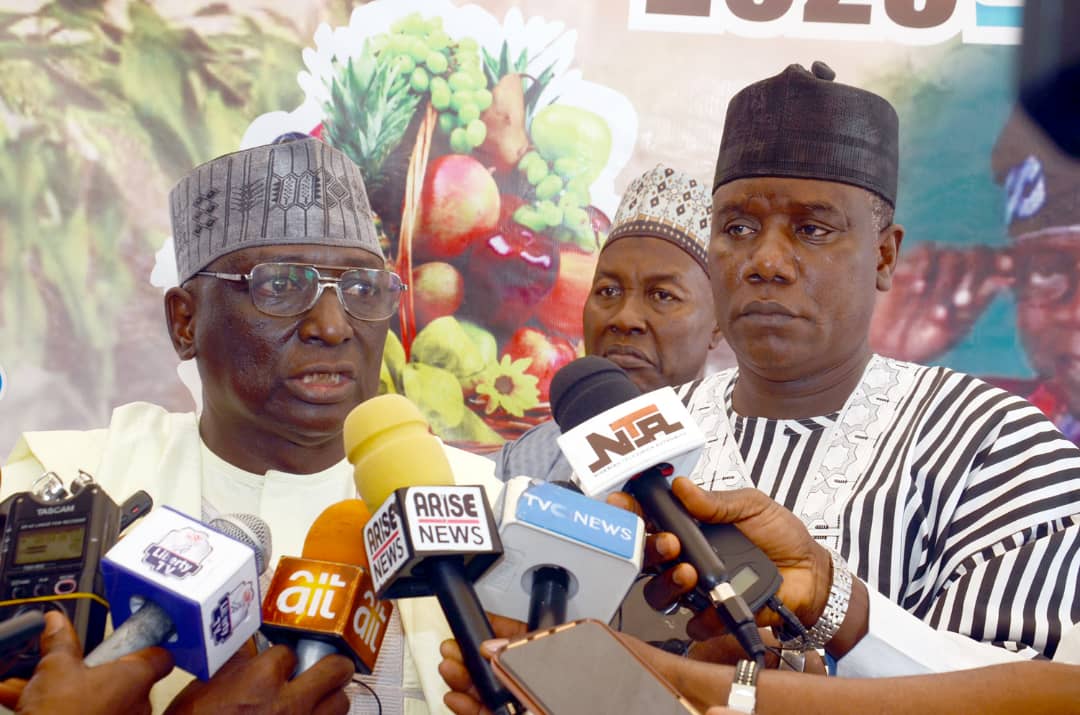Features
The EAT series: Alternative to Nigeria’s agronomy challenge

Agriculture is the most vital sector in the Nigerian economy which engages over 60% of Nigerians, including many rural women, contributing about 35% of the country’s GDP.
Agriculture in Nigeria is largely focused on food crops for the domestic market, given the Nigerian population estimated at 200 million people. In spite of this reality, Nigeria remains a net importer of food, for many reasons. First of all, the majority of the agriculture-focused operations in the country are small-scale, with limited innovation regarding inputs, harvesting, processing, distribution, and access to markets, etc.

The vast majority of citizens who engage in agriculture do so at the subsistence level, majority are uneducated and have limited access to training.
Moreover, 95% of the country’s exports are dominated by petroleum and other related products, which has shifted focus away from agriculture. As a result, until recently, there has been severe underinvestment in agriculture by the public and private sectors, civil society and bilateral and multilateral agencies. This has been intensified by weak, un-enforced, poorly implemented and often conflicting policies at all levels of government.

The potential of the agriculture in Nigeria is very huge with its natural assets which includes land (39.6 m hectares of arable land, of which 60% is under cultivation), climate and rainfall, its coastal areas, its history as an agrarian economy.
Today, Nigeria is one of the world’s largest producers of cassava, cashews, tubers (sweet potato, yams), fruits (mango, papaya) and grains (millet, sorghum and sesame).
In addition, the country’s population represents a large domestic market that can support and sustain local production and processing. Nigeria also plays a key role in West Africa and there are tremendous opportunities to access regional markets.
It is to this end that the Entrepreneurs for Agriculture Transformation (E.A.T) launched the first of its kind agriculture platform devoted to spreading ideas on the future of sustainable agriculture in Africa.
‘The E.A.T Series’ – in the form of short, powerful talks, discussions and individual experience sharing aims to shed more light on the transformational initiatives, experiences and ideas of agriculture entrepreneurs, executives and policymakers – will showcase key individuals and organizations driving positive change on the Continent by championing sustainable innovative solutions/ideas with the potential to significantly transform Nigeria’s (& Africa’s) food systems.
The inaugural talk event in partnership with the German-Heinrich Böll Foundation and The Ojiudu Foundation, was held in Abuja, in a traditional Ted Talk format.
The kick-off EAT Series talk was moderated by Wale Ajiboye, the country director for Change.Org (Nigeria). Speakers at the event included the former Minister of Agriculture, Chief Audu Ogbeh, who said he is committed to facilitating more high-level engagement at the federal and State government level for new partnerships that will support the outcomes of the EAT discussions and initiatives, especially those that promote sustainable agricultural entrepreneurship.
The former Minister also committed to working with EAT towards its plans to develop an Agriculture Resource Center for Agro-entrepreneurs and executives.
Other speakers at the 2022 EAT series were: Cobi-Jane Akinrele (Aké Collective), Kevin Marks, Owuno Ogbeh (Farmore), Lovelyn Ejim (Network of Women and Youth in Agriculture in Nigeria).
According to agro-Industrialist/entrepreneur Buffy Okeke-Ojiudu, Founder of E.A.T & CEO of Zebra Agro-Industries – “Platforms that foster collaboration and information dissemination are a crucial part of Africa’s journey towards liberating her food systems. Through such platforms best practices can be identified and amplified.”
Okeke Ojiudu went further to say that, “Africa has before it a unique opportunity to leapfrog some of the harmful industrial practices which have been firmly established in other markets…..we are able to deliberately develop a more sustainable and inclusive foundation for our food-systems, while engaging modern technology as an enabler”
“Agriculture in Nigeria is so important to the economy and the people’s daily lives that, despite its setbacks, it will inevitably prosper.
Through farming and livestock development in Nigeria, the country will have a stronghold on its agriculture productivity especially with the help of the EAT series.
In attendance were captains of the development and social impact spaces. The audience included country directors and top executives from organisations like – Oxfam, GIZ, The Tony Blair Institute, USAID, Action Aid, Acumen, Ministry of Agriculture, Ministry of Trade & Investment, The Federal Ministry of Science and Technology, The Bank of Agriculture, Office of The Vice President, SWOFON – Smallholder Women Farmers of Nigeria, Heinrich Böll Stiftung, Agricultural Research Council of Nigeria, Alliance of Women Farmers in Nigeria.
Interested parties can register to receive EAT Updates via – www.eatafrica.org
Instagram @eat.org.africa













